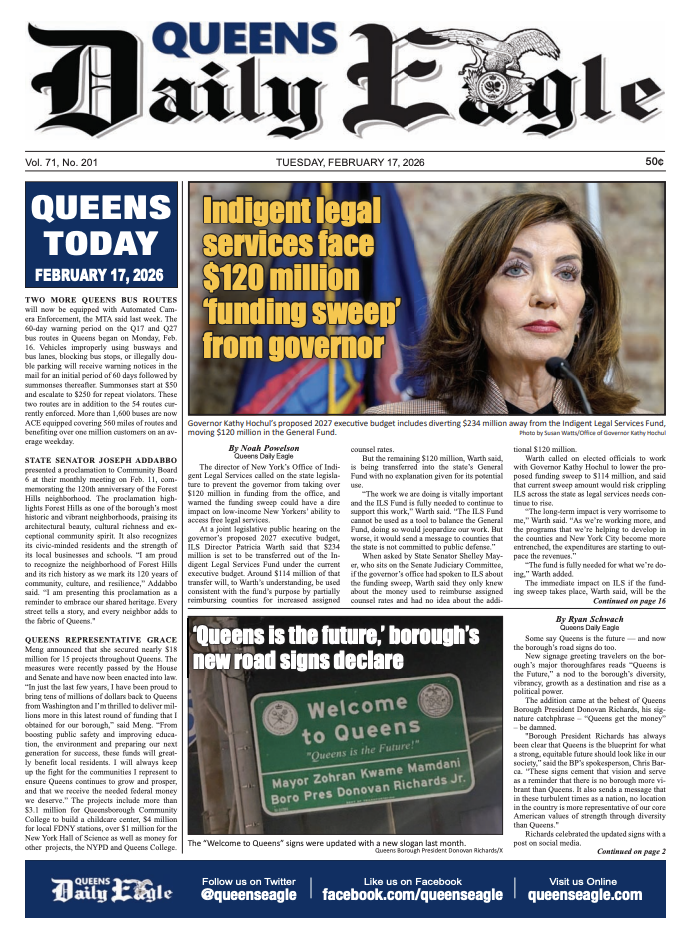Public advocate vows to block property taxes without bigger NYPD budget cuts
/John Mccarten/city council flickr
By David Brand
New York City Public Advocate Jumaane Williams says he will not sign documents authorizing the city to collect property taxes if Mayor Bill de Blasio and the City Council enact a budget that does not include an NYPD hiring freeze.
Williams announced the 11th hour gambit Tuesday morning, the final day before the fiscal year budget deadline.
“As we near the final budget vote, it has become clear that this budget ignores some of the most critical elements of reducing NYPD funding and redefining public safety,” Williams said in a statement. “Unless it meets those needs, I will use my Charter authority to prevent the budget from being executed.”
As we near the final budget vote, it has become clear that this budget ignores some of the most critical elements of reducing NYPD funding and redefining public safety.
— Office of the Public Advocate Jumaane D. Williams (@nycpa) June 30, 2020
Unless it meets those needs, I will use my Charter authority to prevent the budget from being executed.
More: pic.twitter.com/Bv0nyUuXhE
The city charter empowers the public advocate with an administrative role in the collection of property taxes.
Warrants authorizing city officials to collect the taxes “need be signed only by the public advocate and counter-signed by the city clerk,” section 1518 of the charter states.
“Immediately thereafter and on or before the thirtieth day of June, the assessment rolls of each borough, as corrected according to law and finally completed, or a fair copy thereof, shall be delivered by the public advocate to the commissioner with the proper warrants,” the city’s governing documents continues. “At the same time the public advocate shall notify the comptroller of the amount of taxes in each book of the assessment rolls so delivered.”
Williams said the signatures were usually a “pro forma” process but he was prepared to take an unprecedented step to influence changes. “I’m trying to exercise all the tools given to me in the charter,” he said during a press briefing.
Williams and some other local elected officials have joined police reform groups in calling for an NYPD hiring freeze as well as funding cuts to the department, which had an operating budget of more than $6 billion last fiscal year.
They have specifically demanded that the city cut $1 billion in NYPD funding and divert that money to address social issues, like affordable housing, food insecurity and youth programs.
De Blasio said he was committed to meeting that goal, but critics of the agreed-upon budget say the cuts in spending are based on the expectation of fewer overtime hours and a long-term plan for moving school safety agents from the NYPD to the Department of Education.
Politics aside, real estate lawyer Joel Marcus said freezing tax collection would be “welcome news” to property owners, but at this point would come too late for people and businesses who have paid before the July 1 deadline.
“So many people are in pain because of the shutdown, the lockdown,” said Marcus, a property tax expert. “I represent a lot of hotels and they can't even pay the tax.”
Though some commentators questioned whether Williams could actually pull off the maneuver, Marcus, a partner in the firm Marcus Pollack, said he thinks it would hold up in court.
“This has never come up before and his role is really ministerial in a sense that he's a functionary and it's a rubber stamp that takes the city through the process,” Marcus said. “However, the city Charter is not easily amended so if it says he has to sign it, then he has to sign it.”
“It's very interesting and it's probably the only power he has,” he added, in reference to the limited tangible powers of the public advocate.
Correction: This article previously referred to today as Monday. It is, in fact, Tuesday.




